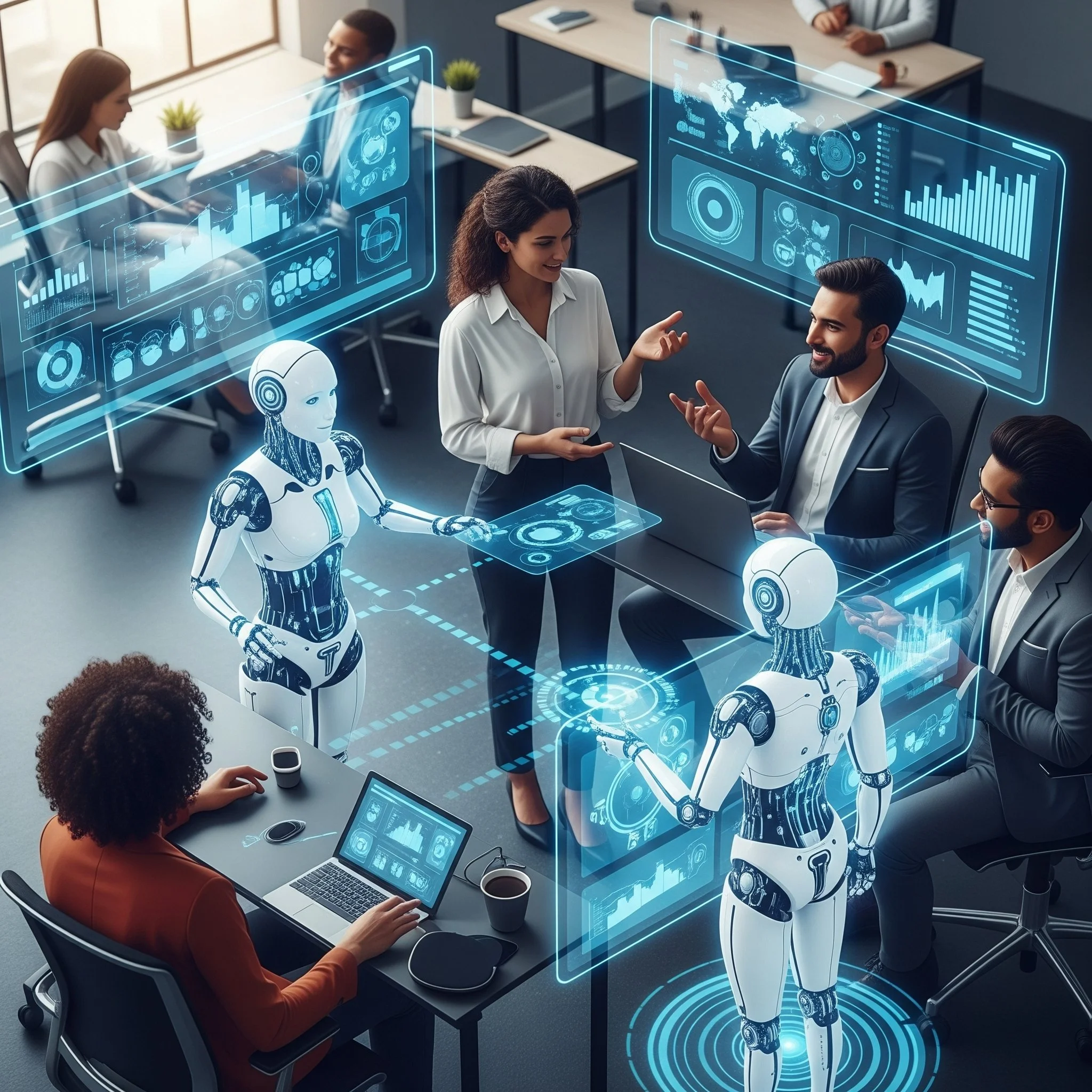The Future of Work: Collaborating with AI Agents, Not Competing Against Them
For decades, the narrative surrounding automation and artificial intelligence has been steeped in fear—Will AI take my job? But a more forward-thinking question is now emerging: How can I work with AI to do my job better?
We are entering a new era of productivity where humans and AI agents collaborate, not compete. In this future, AI is not a threat—it’s a teammate.
From Replacement to Augmentation
The initial waves of AI and automation were designed to replace repetitive, rule-based tasks—think data entry, basic customer service, and logistics. But the next evolution of AI is about augmentation. These AI agents assist humans in creative, strategic, and decision-making roles.
Whether it's helping a marketer brainstorm content ideas, assisting a software engineer with code generation, or supporting a lawyer in drafting documents, AI is becoming a co-pilot rather than an adversary.
What Are AI Agents?
AI agents are systems that can perceive, reason, and act autonomously or semi-autonomously to help achieve specific goals. Unlike traditional software tools, they’re capable of adapting to context, learning from user input, and completing multi-step tasks.
Examples include:
AI writing assistants like ChatGPT and GrammarlyGO
Code copilots like GitHub Copilot
Autonomous task managers like Auto-GPT and enterprise RPA bots
Scheduling agents, data analysts, and customer support assistants
These agents are growing smarter, more conversational, and increasingly capable of collaborative workflows.
The Human-AI Partnership
The most productive work environments of the future will combine human creativity and judgment with AI’s speed and precision. Here’s how:
1. AI as a Research Assistant
Need to synthesize market trends, customer feedback, or legal rulings? AI agents can scan thousands of documents in seconds, providing concise summaries and actionable insights.
2. AI as a Creative Spark
Writers, designers, and strategists are using AI to break through creative blocks. It doesn't replace their vision—it enhances it.
3. AI as a Productivity Booster
From writing emails and generating reports to analyzing spreadsheets and managing calendars, AI agents free up time for high-impact work.
4. AI as a Teacher
AI can personalize learning paths and coach professionals in real time, enabling rapid upskilling and knowledge sharing.
Rethinking Skills and Roles
Collaborating with AI requires a new mindset and skillset. Here are the emerging “human” skills that will matter most:
Prompting and instructing AI effectively
Critical thinking to validate AI outputs
Empathy and interpersonal communication
Ethical reasoning in AI-assisted decisions
Adaptability in fast-evolving tech landscapes
Roles won’t disappear overnight—but they will evolve. The most valuable professionals will be those who know when to trust AI, when to question it, and how to guide it.
Collaboration, Not Competition
It’s easy to frame AI as a rival. But the more empowering truth is that we’re building tools designed to work with us, not instead of us.
A writer with AI writes faster.
A designer with AI iterates quicker.
A manager with AI makes better-informed decisions.
The future belongs not to humans or machines—but to humans who can collaborate with intelligent machines.
Final Thoughts
The narrative is shifting: AI isn’t the end of work—it’s the beginning of better work.
As AI agents grow more capable, our challenge isn’t to outwork them—it’s to work with them. The future of work is symbiotic, creative, and deeply human at its core.
Ready to meet your AI coworker? The future is already clocked in.

